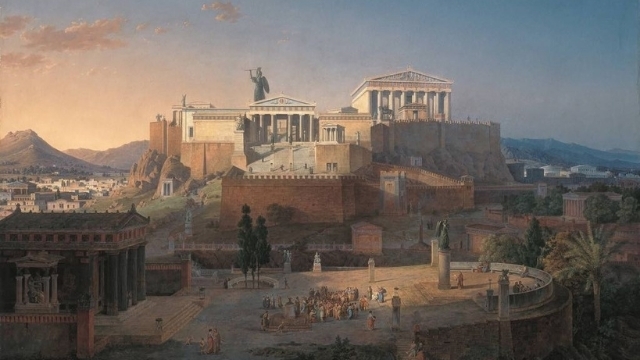09/22/2021 DANIELA BOVOLENTA
Democracy requires an effective separation of powers and keeping bureaucrats in check. It did not happen in Taiwan.
by Daniela Bovolenta*
*A paper presented at the webinar “Democracy, Transitional Justice, and the Tai Ji Men Case,” organized by CESNUR and Human Rights Without Frontiers on September 15, 2021

The success of the International Day of Democracy proves that many in the world, at least verbally, profess their loyalty and enthusiasm for democratic values. Things, however, become less clear when we ask the question, “What is democracy?”
Democracy is a Greek world that means “government of the people.” The Greeks distinguished between three possible forms of governments: monarchy, aristocracy, and democracy. They meant that there were three ways to decide who should rule a city or state. First, a king—in some cases, already in ancient times, even a queen—could rule simply because he or she was the closest descendant of the previous monarch. Second, a class of aristocrats, limited in number, may rule. Aristocracy as a system of government did not disappear with ancient times, and an example that lasted into the modern era is the Republic of Venice. Third, the rulers can be periodically elected by the citizens.
This third system, democracy, was first developed in the city-state of Athens in the sixth century before the Christian era. It was something new, although only male citizens voted. Women and slaves did not vote, meaning that in practice the government of the city was elected by roughly one third of those who lived there.
In fact, women did not vote until the 19th and in many countries the 20th century, with the Grand Duchy of Tuscany, in Italy, being the first modern state allowing female citizens to participate in administrative elections, in 1849. This was no mean achievement, considering that for example in the United States women won the right to vote only in 1920.
The Catholic Church has been among the moral authorities which have insisted that no system to choose the rulers guarantees justice automatically, although in recent times it has also stated that democracy with universal suffrage may be the most effective model for modern societies characterized by a large degree of social, cultural, religious, and sometimes ethnic pluralism.
However, both religious authorities and scholars agree that elections where all citizens are entitled to vote are not enough to call a country democratic. For example, North Korea’s official name is the Democratic People’s Republic of North Korea, and its propaganda claims that it is the most democratic country in the world. Elections are regularly held, and the ruling party (formally, a coalition of parties) used to gather 99% of the votes, until in 2017 it decided this was not good enough and reached 100%. Also, North Korean elections have the record number of voters in the world, 99.9%, which is not surprising considering that those who don’t vote are arrested and may even be executed.

Few people would accept that this is a real democracy. In fact, scholars believe that a country becomes democratic at the time of its third transition in power from one party to another. In Taiwan, this third transition happened in 2016, although the Martial Law had been abrogated in 1987, making the period between 1987 and 2016 a transitional one. However, the Tai Ji Men case in Taiwan is a good mirror where we can look at democracy and see that even rotations between parties are not enough to find in a country a full-blown democracy.
Scholars know that democracy requires a separation of powers, not only in the Constitution but in practice. The Tai Ji Men case, and other cases of tax injustice, proved that in Taiwan neither the legislative power nor the judiciary power really controls the branch of the executive power dealing with taxes.
The Parliament told many times the National Taxation Bureau (NTB) that it should solve the Tai Ji Men case by acknowledging that Tai Ji Men was not guilty of tax evasion, and that the gifts given by the dizi (disciples) to their shifu (master) were not taxable. The National Taxation Bureau ignored the Parliament.

Courts of law told several times the National Taxation Bureau that the tax bills issued against Tai Ji Men came from faulty criminal charges, of which Dr. Hong and his co-defendants were innocent, and should be withdrawn. The judiciary power was ignored, too.
This demonstrates that in Taiwan something is still wrong with the separation of powers and, as a consequence, with democracy. I am not arguing this is a problem in Taiwan only. Taxes are an extremely complicated matter, even courts of law many not totally understand them, and tax administration is based, again not only in Taiwan, on explanatory letters and administrative orders on which the Parliaments have little or no control.
However, when as it happened in the Tai Ji Men case, Parliaments and the judiciary are unable to control the tax administration, another essential feature of democracy is compromised, its ability to protect the citizens’ human rights.
For this reason, the International Day of Democracy offers to all of us a worthy opportunity to honor the fight of Tai Ji Men. They fight for all of us. In the words of 17th-century British poet John Donne (which many known because they were quoted by American novelist Ernest Hemingway), any injustice is a bell that rings, whose song we should learn to listen to. “Therefore, Donne wrote, never send to know for whom the bell tolls; it tolls for you.”
Source: Bitter Winter
